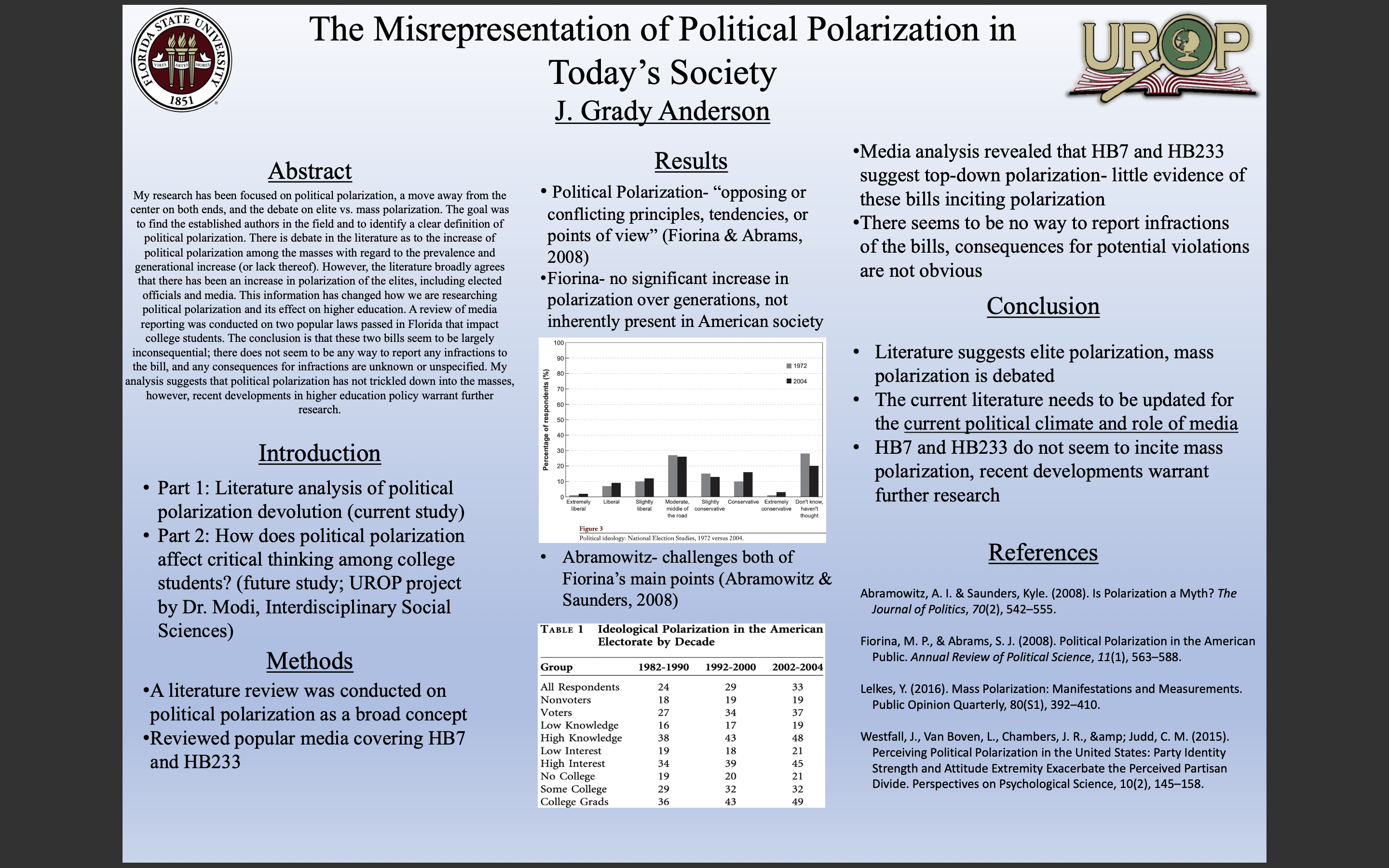Research Symposium
23rd annual Undergraduate Research Symposium, April 6, 2023
Grady Anderson Poster Session 2: 1:30 pm - 2:30 pm/ Poster #279

BIO
My name is Grady Anderson, and I am a first year student from Leesburg, FL majoring in Political Science with a minor in Sociology. On campus, I serve as the Director of Research for the Florida Student Policy Forum and a Tour Chair for the Academic Recruitment Organization. I am also a member of 'Noles Engaged in Politics, with which I lobbied at the Capitol on behalf of the FSU student body, and the Presidential Scholar Program, the premier undergraduate merit scholarship at Florida State University. My academic interests lie in education and social policy, and the growing intersection between the two. Professionally, I aim to devote myself to increasing access to quality education and breaking down inequities in our educational system.
The Misrepresentation of Political Polarization in Today's Society
Authors: Grady Anderson, Dr. Radha ModiStudent Major: Political Science
Mentor: Dr. Radha Modi
Mentor's Department: Interdisciplinary Social Science Mentor's College: Social Sciences and Public Policy Co-Presenters:
Abstract
My research has been focused on political polarization, a move away from the center on both ends, and the debate on elite vs. mass polarization. The goal was to find the established authors in the field and to identifv a clear definition of political polarization. There is debate in the literature as to the increase of political polarization among the masses with regard to the prevalence and generational increase (or lack thereof). However, the literature broadly agrees that there has been an increase in polarization of the elites, including elected officials and media. This information has changed how we are researching political polarization and its effect on higher education. A review of media reporting was conducted on two popular laws passed in Florida that impact college students. The conclusion is that these two bills seem to be largely inconsequential; there does not seem to be any way to report any infractions to the bill, and any consequences for infractions are unknown or unspecified. My analysis suggests that political polarization has not trickled down into the masses, however, recent developments in higher education policy warrant further research
Keywords: politics, polarization, higher education


